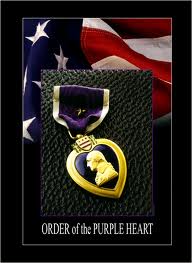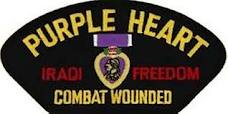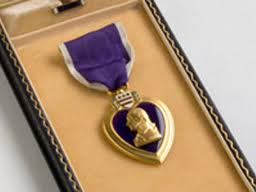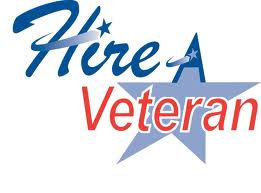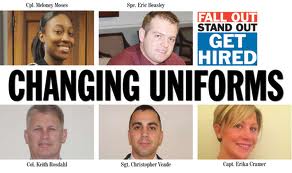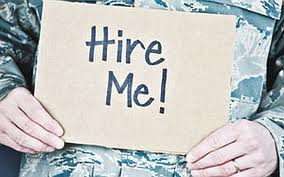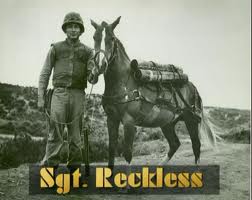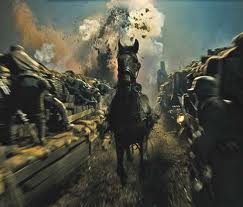Oct
31
STRENGTH OF SPOUSES
Filed Under Combat PTSD, Healing, Spouse, Stress, TBI & PTSD, Tears of a Warrior, Trauma, War | Comments Off on STRENGTH OF SPOUSES
by Janet J. Seahorn, Ph.D
In the past few years, I’ve written countless blogs on the strength and endurance of our veterans. However, the other side of that coin is the strength and endurance of their spouses. Several days ago we received an e-mail from a spouse who had heard about us and our book through an article that appeared as a Wyoming magazine article. She wrote about the challenges of married life with her veteran husband. A situation that became even more desperate after he suffered a traumatic brain injury (not from combat) that she wrote, “took him totally out of commission”. The e-mail went on to describe how other people did not see the depth of his many wounds, but she was faced with them daily enduring aggressive behaviors and foul language.
The injury occurred in 1998, but it was not until 2001 that the situation became too difficult to bear. I was his sole caregiver & therapist. When things got bad, I was the human standing in front of him as his anger came out.
… There were many days of not sleeping and warding off his craziness. In the first two years after his head injury, we almost lost the house twice. We literally lived in a wooden tent – the house was emptied out of furniture and appliances as the sheriff’s department kept impounding our possessions because we couldn’t pay our bills – possessions which ended up on the court house steps selling for $1. My daughter and I sought safe shelter six times in those two years to get away from him and his outbursts – the first time was on her 10th birthday.
One may think, wow, this sounds pretty darn extreme, yet, due to the lack of available resources in her area, obtaining services was nearly impossible. Her state of affairs is not unlike many of our returning military people and their families. Many spouses are drained of energy trying to keep their loved one out of jails and mental health institutions. What makes her story even more thought-provoking is her educational credentials, during all the turmoil she went back to school and obtained a Master’s degree in mental health. Yet, she has had to fight her own demons brought on by the many years of being exposed to an unpredictable and toxic home environment.
With her educational background she states, I have dissected trauma and I understand the roots of it more than most people.
And perhaps, her most profound statement,
Unfortunately, the war doesn’t stop when they come home. They never leave the ambush; it can haunt them for the rest of their lives. They are eventually removed from the war situation and are not confronted with that type of environment every day (other than their memories). Their spouses and children aren’t so lucky. They too have to live with the aftermath of war.
Thank you, Carol, for your introspective thoughts, your daily courage, and your persistence to keep going even when it would be easier to give up. You are certainly one of our country’s many amazing military spouse.
Aug
19
GAINING WISDOM
Filed Under Tears of a Warrior, Veterans, Vietnam Today, War, Wisdom | Comments Off on GAINING WISDOM
by Janet J. Seahorn, Ph.D
In the space between an end and a new beginning, life unfolds and we are given a greater understanding of the meaning of our journey.
So what is wisdom? How do I get it? How can I recognize it? Some would describe wisdom as insight, a type of intelligence gained from age, good judgment, level headedness, and knowledge. In my many years I have observed children who seem to have an inner knowing and awareness of the world far beyond their years and I have seen adults who have the impulse control and selfishness of a two year old.
For most of us, we may not always recognize wisdom but we pretty much know when someone does not possess it. Many of the wisest individuals that I know did not gain this trait by living an easy life. Indeed, much of their insight came after living and enduring a great many experiences, both good and difficult. My neighbor, Mary, who is now 104 years young, is a true example of a wise person. She grew up raised by a single mother after her father abandoned the family when she was a child. Her first husband died of a heart attack leaving her with four young children. Life was hard, but she kept working to support her children and herself. There was no time for complaining, only time for doing. Another trait Mary holds is a way of looking at the world in a positive manner. This is not to say she didn’t have her difficult moments, but she didn’t allow these times to last long. As she states, “I didn’t have enough energy to waste it on being negative. I had children to raise and work to do”.
So many of our veterans have the “Mary Factor”. War took much of their youth and innocence but it never took their will to go on, to live a productive life, to contribute to their communities and families. Life after combat has not been easy, yet it has given these warriors a sense of personal knowledge, and insight into the world. Many people who have endured far less do not always develop this trait. Veterans have a different kind of wisdom regarding the world and freedom. They understand sacrifice and pain, but most make a conscious choice to focus on more productive things. And they understand the wisdom of this old Rwandan Proverb:
You can outdistance that which is running after you, but not what is running inside you.”
And so, like Mary, most of us struggle to come to terms with the inside running, and such a journey collects its own wisdom.
Aug
14
WHEN NEEDED, CHOOSE PERSISTENCE
Filed Under Tears of a Warrior, Troops, War | Comments Off on WHEN NEEDED, CHOOSE PERSISTENCE
by Janet J. Seahorn, Ph.D
What is it that keeps someone going when everyone else seems to be giving up? We hear about such individuals on television, read about them in magazines, and if we are really lucky, we even know a few personally. When trying to put together some common traits of these resolute beings, it is interesting to see what it is that keeps them going.
For some it is religion; a deep faith in a higher source that is walking the journey of a demanding life with them. For others it is more about spirit than religion – spirit being defined as the vital force that characterizes a human being as being alive or a sense of self and energy. Yet, for many it is as simple as living for a cause that is greater than the personal comfort of the self. The vast amount of veterans we have been around have a profound abundance of this trait. Perhaps living beyond oneself came as a result of serving their country even when it meant the possibility of death, bodily injuries, and emotional distress.
In combat, soldiers woke up every morning to face a foe that was ever present. Seeing the price of war and dealing daily with personal losses was a constant of their battle experience. There was no such thing as giving-up or giving-in because it meant that it would let their fellow troops down.
Perhaps the greatest battle for many is when they return home. The challenge of trying to reintegrate into a community which has essentially been isolated from war. Families, spouses, children, friends, coworker – most are truly grateful for the warrior’s sacrifice. We try to understand, to be patient and encouraging, yet, there is absolutely no way any of us who have not been in a combat situation can fully comprehend such devastating experiences.
Therefore, choosing persistence is an option that allows the person to move forward. It is a choice that the vet must make every day. It is a choice that spouses, children, families, and friends must make every day. And it is a choice that Winston Churchill proposed in his statement… “Never give in, never, never, never — in nothing, great or small —- never give in except to convictions of honor and good sense.”
And this is the true essence of persistence. And last, a very special quote from Winnie the Pooh,
Promise me you’ll always remember: You are braver than you believe,
And Stronger than you seem,
And smarter than you think.
(A.A. Milne)
Jun
26
LOOKING FOR HOPE
Filed Under Hope, PTSD, Tears of a Warrior, Veterans, War | Comments Off on LOOKING FOR HOPE
by Janet J. Seahorn, Ph.D
For several years we have written about the challenges and “crap” of PTSD. Perhaps it is time to dedicate the remainder of the year to things that are more positive, more inspirational. Yes, the thorny stuff will still be there, waiting for another opportunity to remind us that ### happens. Yet, I am reminiscent of some of the powerful stories from men and women who have overcome torture, isolation, and incredible emotional agony.
One such person is Nelson Mandela, the African leader who was imprisoned by the British for many years, and kept in seclusion for much of his stay. When asked how he kept his sanity he quoted from a poem, Invictus by William Henley. Two of my favorite verses from the poem go like this:
Out of the night that covers me,
Black as the Pit from pole to pole,
I thank whatever gods may be
For my unconquerable soul…….
It matters not how strait the gate,
How charged with punishments the scroll.
I am the master of my fate:
I am the captain of my soul.
Louis Zapparini, a decorated WWII aviator who spent forty-nine days on a raft in the Pacific Ocean only to be captured, thrown in a Japanese prison camp and brutalized by his captures for several years, found hope in forgiveness.
Victor Frankel lost his wife and all of his family members in German concentration camps. In his famous book, Man’s Search for Meaning, he describes the essential nature of being able to survive the unspeakable. It wasn’t the best looking, or the strongest, or smartest that lived through the ordeal.
For many who persisted in the face of enormous adversity it was living for something beyond oneself… having a purpose, an unfulfilled mission to one’s life that must be completed, no matter what the current conditions. This was what kept many going, day by day, and minute by minute.
When things get rough, where do you go to find your Hope? Is it your family or a special loved one? A loyal pet? A walk with nature? A smile from a stranger? Or perhaps an inspirational statement in a favorite book? Hope resides in the both the vast and tiniest of spaces. It can be as massive as a sun filled sky or a small as a butterfly.
It does not define itself in things, but in hearts and minds. It is never an empty box, although there may be times when our spirits feel such a void. Sometimes it is just right in front of us, and other times we must search deep to find and grab Hope’s fingers. It is always there, but our hands must be open to grasp its presence.
Just when the
Caterpillar thought
Her world was over
She became a Butterfly
May
25
REMEMBER ME
Filed Under American Patriotism, Memorial Day, Tears of a Warrior, Veterans, War | Comments Off on REMEMBER ME
by Janet & Tony Seahorn
Another Memorial Day. Another opportunity for a barbecue or a day off. Another few hours, perhaps, to sleep in and do absolutely nothing. Not a bad thing at all, yet not quite the purpose of the day.
What then is that purpose of a day to remember? By definition, Memorial means preserving the memory of a person or thing…something designed or adapted to preserve the memory of a person, an event, or anything belonging to past time… a record; (The Living Webster’s Dictionary, p. 595).
Originally it was a day set aside to commemorate and honor those individuals who died serving in war. I wonder, however, how many younger American’s know or understand this special day?
In preserving the reason for Memorial Day, what then should we remember? Perhaps it is not as important to reminisce about all of the bloodshed, awfulness, and destruction of war. More importantly it would serve us well to think of the characteristics of those who fought in any war, past and present. Characteristics such as courage, honor, selflessness. Characteristics such as humility, perseverance, and optimism. Perhaps another lesson of Memorial Day is to keep in mind the huge cost of war in hope those future generations will never have to pay such a price. You see, so many of our past and present military fought for precisely this reason. They went to war to keep not just their future sons and daughters safe, but all of America’s sons and daughter, grandsons, granddaughters…
Therefore, Memorials should not merely be a time for sadness, but also a time for joy and pride in the valor and goodness of spirit of our service men and women.
So this Memorial Day may each of us take time to say a prayer of gratitude to our military young and old and their families, and may each of us say with pride and vigor…
GOD BLESS AMERICA. THE LAND OF THE FREE
May
7
A TIME TO REFLECT
Filed Under Tears of a Warrior, Today's War, Trauma, War | Comments Off on A TIME TO REFLECT
by Janet J. Seahorn, Ph.D
It has been some time now since we heard the disturbing news of the young sergeant who massacred civilians inAfghanistan. According to the media, the individual has been indicted with killing seventeen people, nine of whom were children.
During this time I debated whether or not to broach the subject in our blog. Truthfully, I’m still not certain I want to bring this up again given the enormous amount of media attention. Yet, it seems important to at least give some perspective on what others have been sending us through phone calls, e-mails, etc.
No one would dispute that what occurred was inexcusable. The entire incident is pretty disturbing. However, I continue to wonder who, beside Sergeant Bales is answerable for this horrendous act? Where is the government’s responsibility in choosing to commit our country to two wars yet refusing to enact a draft? Where is the government’s moral accountability in allowing less than 1% of our young men and women and their families to shoulder the enormous burden of continual deployment and redeployment four, five, and six times to various combat zones? Where is the military’s obligation in making sure each troop is in top physical and emotional health before ever being sent back to a war when he/she may not be fully combat ready? And lastly, where is the conscience of each and every American citizen who allows so few to serve in combat and bear the burden of an entire country?
Please understand, I am not trying to be critical, but it is crucial that every aspect of this terrible situation be carefully examined. For you see, these are questions we should all be asking if we are going to do better in the future. Because, unfortunately, in our future there will still be wars. What are the lessons to be learned?
In reality, Sergeant Bales is morally, legally, and physically accountable for this terrible deed. He cannot use the argument of having PTSD as the sole contributor for his actions. Millions of past and present veterans have and are suffering with this condition. Yet few ever commit such violent and unforgivable acts. No, according to what we are being told, these murders were committed by Sergeant Bales for reasons yet to be disclosed. However, each of us must question, who else should bear the consequence of such horrific actions? Are we as a nation pushing some of our troops to the breaking point? War is hell and too much war may be even worse!
Then, as I struggle to come to my own personal conclusion, I am reminded of something I have read many times, “There by the grace of God, go I”.
Feb
25
Purple Heart Warriors (Documentary)
Filed Under Purple Heart, Tears of a Warrior, Veterans, War | Comments Off on Purple Heart Warriors (Documentary)
by Tony Seahorn
Purple Heart Warriors (Documentary)
http://www.youtube.com/watch?v=kAtPzFvbJsI&feature=share
Feb
2
VETS, JOBS AND MISCONCEPTIONS
Filed Under Tears, Tears of a Warrior, Troops, Veterans, War | Comments Off on VETS, JOBS AND MISCONCEPTIONS
by Janet J. Seahorn, Ph.D
Recently, Tony and I visited with a group of veterans from the Military Order of Purple Heart. Attending were vets from WWII, Korea, Vietnam and the current conflicts. While discussing our book, Tears of a Warrior and the issues of PTSD, we got on the topic of how challenging it is for veterans returning from war to find a job. Only in recent times has the issue of work for veterans become clearer.
Many of us thought veterans who came home from serving in WWII were greeted with big parades and wonderful new career opportunities. For years I was under such an assumption. Then I talked with several WWII veterans and what they described was something much simpler. For most, once they returned home they did what historically other veterans had done before them… they went home, tried to find a suitable job and raise a family. Little was written or said about the struggle in finding employment or integrating back into civilian life. For many, there were no parades, no bands welcoming them home, only the test of getting on with life.
Eric Jensen explains in his book about his father, Forever and a Day: The World War II Odyssey of an American Family, how hard it was to find work after the war. As he wrote, many of the jobs were already filled by civilians who had those positions during the war. When the veterans returned there were not as many opportunities for employment as we first believed. Jensen wrote how frustrating it was for his father to have spent so many years away from his family only to return to another struggle – finding a job that would pay enough to support his young family.
Today, too many employers believe erroneously that vets returning from Iraq and Afghanistan may be suffering from PTSD or TBI and are reluctant to hire someone who may be emotionally compromised. We have written on several occasions how this is simply not the case for the majority of combat personnel. Military personnel have proven over and over again that they are bright, committed and competent employees. Given a task, they will make sure it gets completed in a satisfactory manner. They will show up daily, even when they are tired or under the weather. Veterans are some of the most proficient and capable members of an organization.
Part of the healing process of our soldiers, both young and old is to value their sacrifice for our country by honoring them with suitable jobs. One struggle we can help them avoid is a struggle to find work. As a country and as a community perhaps offering employment can be a step of vast significance.
In addition to mending them, “If we send them, let’s then employ them” when they return.
Jan
17
A HORSE NAMED RECKLESS
Filed Under Combat PTSD, Sgt. Reckless, Tears, Tears of a Warrior, War, War Horse | Comments Off on A HORSE NAMED RECKLESS
by Janet J. Seahorn, Ph.D
Amazing story!
This was sent to us recently from one of our readers, Larry Mathena. We had just seen Steven Spielberg’s movie, War Horse, which chronicled (even fictionally), the high cost of war on horses during WWI.
Like people, our four-legged comrades share similar emotions of friendship, love, pain, and grief.
Reckless, however is a true story of a courageous animal that fought in the Korean War.
Read on and view the video. I am sure it will touch many of your hearts like it did ours.
A special thanks to Larry for sharing this heroic story.
|
Jan
10
THE MAN I DIDN’T KNOW
Filed Under Combat PTSD, Family, PTSD, Tears of a Warrior, The Man I Didn't Know, Veterans, Vietnam Veterans, War | Comments Off on THE MAN I DIDN’T KNOW
by Janet J. Seahorn, Ph.D
This is the title of a book sent to us by Marie Leduc, the wife of a Vietnam Veteran who co-wrote it with retired naval aviator, Art Schmitt, Ph.D. Later Art got his degree in psychology. The Man I Didn’t Know: The Stories of Wives and Families of Vietnam Veterans who suffer from “Post Traumatic Stress Disorder”, is a collection of stories and poems written from the perspective of those most directly impacted by combat.
The articles are heartrending and the poetry will literally place you in the hearts and souls of the writers. While reading through the many tales I found several statements pretty sobering and thought provoking. Some statements gave me an unusual viewpoint of war, especially the last few wars we have fought and left without a clear victory. I have included several small snippets of some of these in this blog.
- “The United States did not lose the war in Vietnam, the South Vietnamese did. The last American troops left Vietnam on March 29, 1973, (however, the last flight out wasn’t until 1975). We did not lose the war… we stopped fighting” (p. 16). Recently, December 15, 2011 we raised the last American flag as we leftIraq. I wondered if years down the road we will describe this last conflict in a similar manner.
- “There are two kinds of PTSD… acute, which is treatable, and Chronic, which is manageable”. More Vietnam veterans, per capita, suffer from chronic PTSD than from any other war. The reasons for this is unknown, but it may be that it was an unpopular war and the veterans were not welcomed home” (p. 16).
- In another article, To Answer Your Question, by Ed Ruminski, the veteran is trying to explain to his son what combat was like, how time stopped and actions were both quick and in slow motion. How he had to be “constantly watching, listening to my senses”. In the end he merely states, “They call it war, and to answer your question son, yes, I have killed somebody. What I was unaware of was how by that process I just described, I was also killing myself” (p.19). Sadly, many of our Iraq and Afghanistan troops are returning with parallel sentiments.
 These are just a few statements from the book. The various writings describe the wounds of the minds, how scary it can be for a family to negotiate the many behaviors and emotional ups and downs of their beloved warrior, how a mother must learn to cope with the death of her son while visiting the Vietnam Wall to stay connected, and how PTSD affects children when their under developed minds and bodies leave them vulnerable to actions which they may never fully understand. In the end, this last quote by Jacqueline McVicar (p. 85) really says it all.
These are just a few statements from the book. The various writings describe the wounds of the minds, how scary it can be for a family to negotiate the many behaviors and emotional ups and downs of their beloved warrior, how a mother must learn to cope with the death of her son while visiting the Vietnam Wall to stay connected, and how PTSD affects children when their under developed minds and bodies leave them vulnerable to actions which they may never fully understand. In the end, this last quote by Jacqueline McVicar (p. 85) really says it all.
“His fight was in Vietnam,
Ours is the Vietnam in him.”
Ordering information: ISBN: 1-4196-2452-0 www.booksurge.com 1-866-308-6235
















